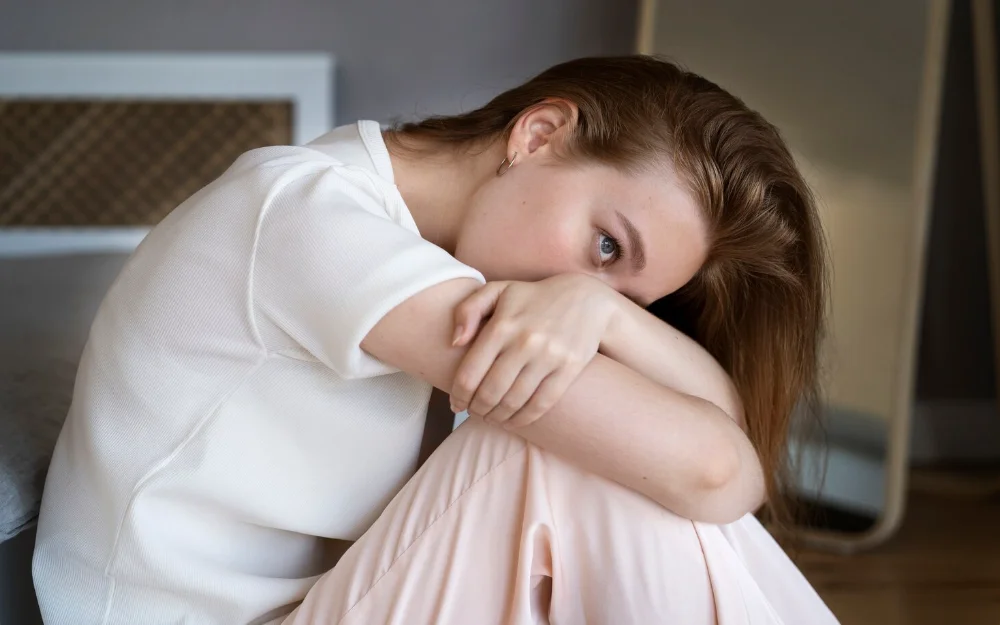Miscarriage is an incredibly difficult experience, both physically and emotionally. It’s a loss that many women struggle with, yet few talk about in depth. For some women, the pain of miscarriage is compounded by postpartum depression, a condition that is often associated with childbirth but can also occur after a miscarriage.
Understanding postpartum depression in the context of a miscarriage is crucial for emotional recovery. This article aims to provide clear, compassionate information to help women understand what postpartum depression after miscarriage is, how to recognize it, and how to find the support needed to heal.
Understanding Postpartum Depression After Miscarriage
Many people assume that postpartum depression is only something that occurs after the birth of a living child. But that’s not the full picture. In reality, many women who experience a miscarriage may face postpartum depression as well. To understand why, it’s important to first explore what postpartum depression is and how it can affect women following miscarriage.
What Is Postpartum Depression?
Postpartum depression is a form of depression that typically arises after childbirth, although it can develop at any point in the months following delivery. Unlike the typical “baby blues” many new mothers experience, postpartum depression can linger for a long time and may interfere with a woman’s ability to function day-to-day.
Symptoms can include deep sadness, anxiety, changes in sleep and appetite, and an overall sense of hopelessness. While these feelings are common after childbirth, they can also happen after a miscarriage.
The Link Between Miscarriage and Postpartum Depression
The connection between miscarriage and postpartum depression is largely related to hormonal changes. When a woman miscarries, her body experiences hormonal shifts similar to those that occur after childbirth.
These changes can affect mood and trigger symptoms of depression. On top of this, the emotional toll of losing a pregnancy and the grief associated with the loss can increase the risk of depression
Unique Aspects of Post-Miscarriage Postpartum Depression
Postpartum depression after miscarriage can feel uniquely isolating. Unlike the traditional postpartum experience, where a mother has a baby to care for, after a miscarriage, there may be no visible sign of the pregnancy.
This absence can intensify feelings of loss and make it harder to talk about the grief. For many women, there’s also the added pressure of societal expectations — it can be hard to grieve openly, especially when others may not recognize the depth of the loss.

Can You Get Postpartum Depression After a Miscarriage?
You might be wondering, “Can you get postpartum depression after a miscarriage?” The short answer is yes. It is absolutely possible. Let’s explore why this happens and how to recognize it.
The Possibility of Postpartum Depression After Miscarriage
While the term “postpartum depression” is commonly linked to childbirth, women who experience miscarriage can face similar symptoms. This is because the hormonal fluctuations that happen after a miscarriage are similar to those after giving birth. Additionally, the intense emotional and physical grief from the loss of a pregnancy can trigger or exacerbate depression.
Common Misconceptions
One misconception is that women who lose a pregnancy early on are not as affected as those who lose a baby later in pregnancy. This is simply not true. Miscarriage, no matter the stage, is a significant emotional experience that can lead to depression.
It’s important to recognize that every woman’s grief is valid, regardless of the timing of the loss. Miscarriage is a deeply personal experience, and each individual’s emotional reaction is unique.
What Science Says
Scientific research supports the understanding that women who have experienced a miscarriage are at increased risk for depression. A study published in the Journal of Affective Disorders found that women who miscarried had a higher likelihood of experiencing depressive symptoms compared to women who did not.
This highlights the importance of recognizing that postpartum depression is not just linked to childbirth but can also follow the loss of a pregnancy.
Symptoms of Postpartum Depression After Miscarriage
The signs of postpartum depression after miscarriage may be similar to those seen after childbirth. However, because the loss is often less recognized by others, the symptoms may not always be as easy to spot. Understanding the symptoms can help women seek help sooner.
Emotional Symptoms
Emotional symptoms may include:
- Sadness or feeling numb: These feelings may come and go, but they can be all-encompassing when they occur.
- Guilt or blame: Women may question whether they did something wrong or feel that they are somehow responsible for the miscarriage.
- Anxiety or worry: A fear of not being able to carry a pregnancy in the future or general anxiety about health can manifest.
- Hopelessness: It’s common for women to feel that things will never improve or that they’ll never experience joy again.
Physical Symptoms
While the emotional side is often discussed, physical symptoms can be just as challenging. These include:
- Fatigue: Despite feeling emotionally drained, many women with postpartum depression after miscarriage also struggle with extreme tiredness.
- Changes in appetite: Some women overeat to cope with the pain, while others lose their appetite altogether.
- Sleep disturbances: Difficulty falling asleep, staying asleep, or waking up too early are common.
- Body aches: Physical pain such as headaches or muscle tension may also be present, though they may not have a clear cause.
Psychological Effects
The psychological toll can be significant. Women might feel disconnected from their bodies or from others. The loss of a pregnancy, especially if it was highly anticipated, can cause feelings of identity loss or deep loneliness.

Coping Strategies for Postpartum Depression After Miscarriage
Though postpartum depression after miscarriage is difficult, it is possible to heal. Here are some ways to begin the recovery process.
Acknowledging the Grief
One of the most important steps in recovery is allowing yourself to grieve. The emotional pain after miscarriage is real, and it is important not to downplay it. Recognizing that it’s okay to mourn helps start the healing process.
Seeking Professional Help
Professional therapy can make a world of difference when dealing with depression after a miscarriage. Talking to a counselor who specializes in grief or postpartum issues can help you understand your emotions and develop healthy coping strategies. Cognitive Behavioral Therapy (CBT) is often used to help women manage negative thoughts and improve their mental health.
Support from Family and Friends
Having a solid support system is vital. It can be hard to talk about the pain of miscarriage, but reaching out to loved ones can help. Whether it’s your partner, friends, or family, talking openly about your emotions can provide comfort. Some women also find support through online communities or in-person groups for others who have experienced miscarriage.
Self-Care Strategies
Taking care of yourself is critical to your recovery. Simple self-care activities such as:
- Taking time for relaxation through meditation, deep breathing exercises, or gentle yoga
- Maintaining a healthy diet and drinking plenty of water
- Engaging in light exercise, like walking or stretching, can boost your mood
- Setting aside time for rest and sleep can help your body and mind recover
Recap: The Importance of Seeking Support
Postpartum depression after miscarriage is a real and valid experience. Recognizing the symptoms early on is crucial to getting the help needed to heal. No matter where you are in the healing process, remember that you don’t have to go through it alone. Whether you’re seeking professional help, talking to loved ones, or engaging in self-care, there are steps you can take to feel better. Your grief is valid, and healing is possible with the right support.
